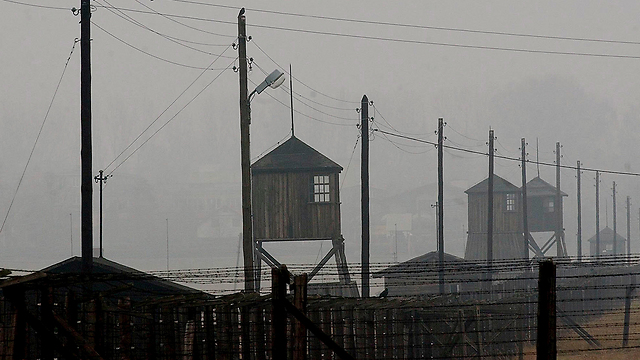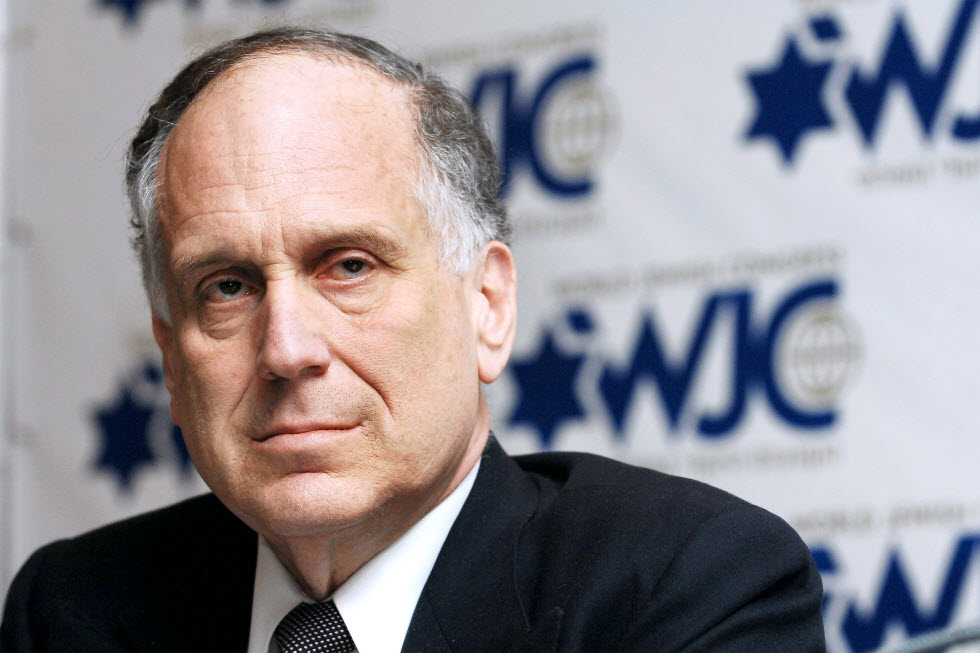

Poland's lower house of parliament approves Holocaust law changes
In an unexpected move following pressure from Israel and the United States, Polish Prime Minister Mateusz Morawiecki asks lower house of parliament to remove jail sentence for suggesting nation was complicit in the Holocaust; ‘We resign from the criminal provisions,’ head of prime minister's office tells public radio.
Poland's lower house of Parliament voted on Wednesday to remove jail penalties for suggesting the nation was complicit in crimes against Jews from a Holocaust law that angered the United States and Israel.
Prime Minister Mateusz Morawiecki asked parliament to amend the law on Wednesday morning—an unexpected announcement that came as his ruling Law and Justice party (PiS) seeks to bolster security ties with Washington and faces heightened scrutiny from the EU.
The amendments passed 388 to 25 with five abstentions following an emotional session in the Sejm, the lower house of parliament.
"We resign from the criminal provisions," the head of prime minister's office, Michal Dworczyk, told public radio, saying those parts of the bill would divert attention from the original point of the legislation.
The Polish law, which was approved in February, makes it a crime to falsely accuse the Polish nation of crimes that were committed by Nazi Germany.
According to the law, “Whoever claims publicly and contrary to the facts that the Polish Nation or the Republic of Poland is responsible or co-responsible for Nazi crimes committed by the Third Reich… or whoever grossly diminishes the responsibility of the true perpetrators of the said crimes - shall be liable to a fine or imprisonment for up to three years. The sentence shall be made public.”
The government said that following a public debate on the bill, it had decided that there were other "tools" it could use to "protect Poland's good name."
Prime Minister Morawiecki said his country hopes changes to a contested Holocaust law would help Warsaw improve relations with Israel, .
Morawiecki and Israeli Prime Minister Benjamin Netanyahu will hold separate news conferences on the issue at 1600 GMT on Wednesday, a Polish government official said.
Jewish group welcomes changes
The World Jewish Congress welcomed Poland's decision to scrap criminal provisions that were part of a Holocaust speech law.
Ronald Lauder, the president of the World Jewish Congress, said the organization was "pleased that the Polish government has recognized the untenable nature of its new Holocaust law."
Lauder said, "Poles are understandably upset when Nazi German annihilation and concentration camps are referred to as 'Polish' simply due to their location on German-occupied Polish soil, but it was an egregious mistake to criminalize those who do so."
After the law was approved, Polish Mateusz Jakub Morawiecki insisted that it won’t harm freedom of speech in his country. He added, however, that the legislation could have been timed and presented better by Poland.
Yad Vashem, the World Holocaust Remembrance Center, later issued a statement on the change.
"Yad Vashem, the World Holocaust Remembrance Center, believes that the current announcement of the Polish government's intention to modify the controversial amendment to the National Remembrance law passed earlier this year, is a positive development in the right direction," the statement began.
"We believe that the correct way to combat historical misrepresentations is by reinforcing open, free research and educational activities," it went on.
"Yad Vashem reiterates its support for ensuring that educators and researchers are not hindered in grappling with the complex truth of Polish-Jewish relations before, during and after the Holocaust."
About 3 million Jews who lived in pre-war Poland were murdered by the Nazis, accounting for about half of all Jews killed in the Holocaust.
Jews from across the continent were sent to be killed at death camps built and operated by Germans in occupied Poland—home to Europe's biggest Jewish community at the time - including Auschwitz, Treblinka, Belzec and Sobibor.
Thousands of Poles risked their lives to protect Jewish neighbors during the war. But research published since the fall of communism in 1989 showed that thousands also killed Jews or denounced those who hid them to the Nazi occupiers, challenging the national narrative that Poland was solely a victim.
The Associated Press contributed to this report.

















